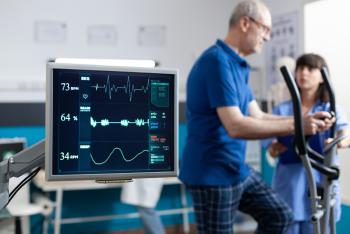Navigate postpartum recovery by addressing mental and physical self-care. Learn key aspects such as...
Read More

A high-risk pregnancy is one that threatens the health or life of the parent or baby before, during, or after delivery. Every year, approximately 50,000 people in the U.S. experience serious pregnancy complications. If your pregnancy is considered high-risk, your doctor will likely recommend additional monitoring or proactive care to ensure you and your baby are healthy.
Early and regular prenatal care is key to having a safe pregnancy and delivery. A maternal-fetal medicine (MFM) specialist can help if you are experiencing complications or symptoms that may indicate your pregnancy is high risk.
“A MFM specialist will carefully monitor your pregnancy and work together with you and your obstetrician or midwife to give you the best chance of a healthy delivery,” said Robert Debbs, D.O., OB/GYN, Penn Maternal Fetal Medicine specialist and Director of Maternal-Fetal Medicine at Inspira Health.
There are many reasons why a pregnancy may be considered high risk. The most common factors include:
“Not all high-risk pregnancies are the same, nor do they always present detectable signs or symptoms,” said Dr. Debbs.
If you are pregnant and experience any of the following symptoms, alert your health care provider right away:
Whether you have an underlying condition before you become pregnant or you want to take steps toward preventing a high-risk pregnancy, keep it simple. Start by scheduling a preconception appointment if you are thinking about getting pregnant, or a prenatal visit if you recently found out you are pregnant.
A prenatal vitamin with adequate folic acid and iron to ensure you and your baby get the nutrients you need should be started at least a month before attempts at pregnancy. You can also discuss things like genetic conditions, prenatal testing options, and maintaining a healthy diet and weight.
From preconception counseling to advanced diagnostic screening, Inspira offers a full range of maternal-fetal medicine services in partnership with Penn Medicine with locations in Mullica Hill and Vineland.
Inspira Health is a high reliability organization (HRO), which means safety is the top priority for patients and staff. To make an appointment, call 1-800-INSPIRA.

Navigate postpartum recovery by addressing mental and physical self-care. Learn key aspects such as...
Read More
Cardiac rehabilitation helps people recover safely and confidently after a heart attack, surgery or...
Read More
Discover Amanda Havey’s inspiring testimonial about her family’s experience at Inspira Vineland NICU...
Read More